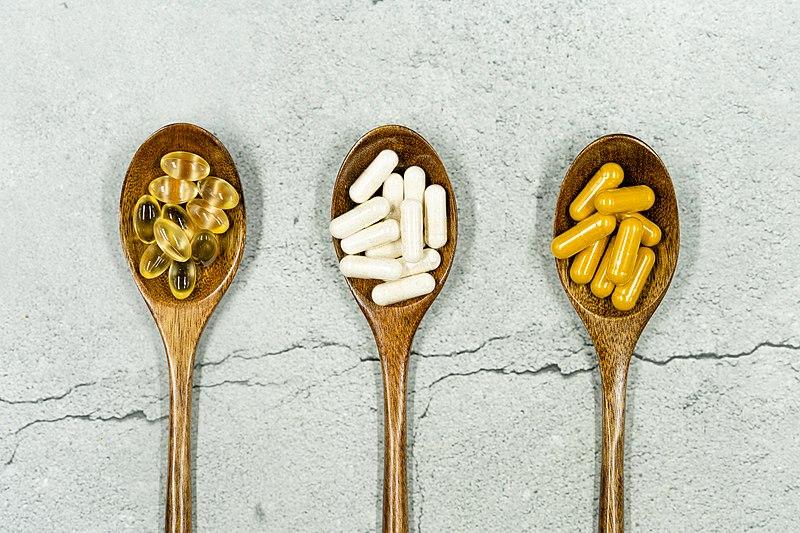
March 21st, 2023 12:00am
Preparing to start your conception journey should start 3-6 month before you actively start trying. A healthy pregnancy starts with a healthy body and that means making sure you are taking care of yourself so you can be in the best place to take care of baby. Nutrition and lifestyle are major components of preconception care, but in this article we'll be talking about some additional support that might be helpful. Here are some of the top supplements for preconception care.
Prenatal vitamins are specifically designed to give you all the nutrients that are important before, during, and after pregnancy. One important vitamin often discussed is Folic acid. It is a B vitamin that is important for the development of the neural tube, which eventually becomes the baby’s brain and spinal cord. However, some people have a hard time methylating folic acid and taking folic acid may not be enough. That is why it's often best to choose a prenatal with methylated folate (5-MTHF).
Omega-3 fatty acids are important for the development of the baby’s brain and eyes. They may also help to reduce the risk of preterm labor and postpartum depression. Omega-3 fatty acids can be found in fatty fish, such as salmon and sardines, as well as in supplements.
Vitamin D is important for the absorption of calcium and phosphorus, which are important for the development of the baby’s bones. Vitamin D may also help to reduce the risk of preeclampsia and gestational diabetes. Vitamin D can be found in fatty fish, eggs, and fortified foods, such as milk and orange juice. It is important to be careful not to take too much vitamin D for an extended period of time, so it's best to ask your provider how much vitamin D you should be taking.
Iron is important for the production of hemoglobin, which carries oxygen to the cells of the body. Iron deficiency can lead to anemia, which can increase the risk of preterm labor and low birth weight. Iron can be found in meat, poultry, fish, beans, and fortified foods, such as cereal. The recommended dose of iron for preconception care is 27mg per day. Iron is commonly found in prenatal vitamins, so its important to check your prenatal.
N-acetyl cystine is the precursor to glutathione, one of the most potent antioxidants in the body. Taking NAC can help naturally boost glutathione levels and protect cells from damage, which helps to promote a healthy environment for conception. In situations where there is also elevated androgen levels (i.e. testosterone), NAC may help to reduce those levels and promote fertility.
Coenzyme Q10 (CoQ10) is an antioxidant that is important for energy production in the cells of the body. It may also help to improve egg quality and support healthy sperm function. Nutritional sources of CoQ10 can be found in organ meats, such as liver and kidney, but it is also available in supplemental form. The recommended dose of CoQ10 for preconception care is 100-200 milligrams per day.
It’s important to remember that supplements should be taken in addition to a healthy diet, not as a replacement for one. Talk to your healthcare provider before starting any new supplements, as some may interact with medications or have side effects. It’s also important to choose high-quality supplements from reputable brands to ensure that you’re getting what you pay for.
References:
Cheraghi E, Mehranjani MS, Shariatzadeh MA, Esfahani MH, Ebrahimi Z. N-Acetylcysteine improves oocyte and embryo quality in polycystic ovary syndrome patients undergoing intracytoplasmic sperm injection: an alternative to metformin. Reprod Fertil Dev. 2016;28(6):723-731. doi:10.1071/RD14182
Jordan RG. Prenatal omega-3 fatty acids: review and recommendations. J Midwifery Womens Health. 2010;55(6):520-528. doi:10.1016/j.jmwh.2010.02.018
Vitamin D and pregnancy. American Pregnancy Association. https://americanpregnancy.org/healthy-pregnancy/pregnancy-health-wellness/vitamin-d-and-pregnancy/. Published June 10, 2022. Accessed February 16, 2023.
Ben-Meir A, Burstein E, Borrego-Alvarez A, et al. Coenzyme Q10 restores oocyte mitochondrial function and fertility during reproductive aging. Aging Cell. 2015;14(5):887-895. doi:10.1111/acel.12368
Allen LH. Biological mechanisms that might underlie iron's effects on fetal growth and preterm birth. J Nutr. 2001;131(2S-2):581S-589S. doi:10.1093/jn/131.2.581S
Located within: Blog.
Have a question or need to schedule an office visit?
Please fill out the form below or call 480.771.4422.
have you seen us?

8952 E Desert Cove Ave, Ste 114. Scottsdale, AZ 85260
© 2025 Natural Kid Doc, Dr. Kiera Smialek ND, FABNP
all rights reserved. privacy policy